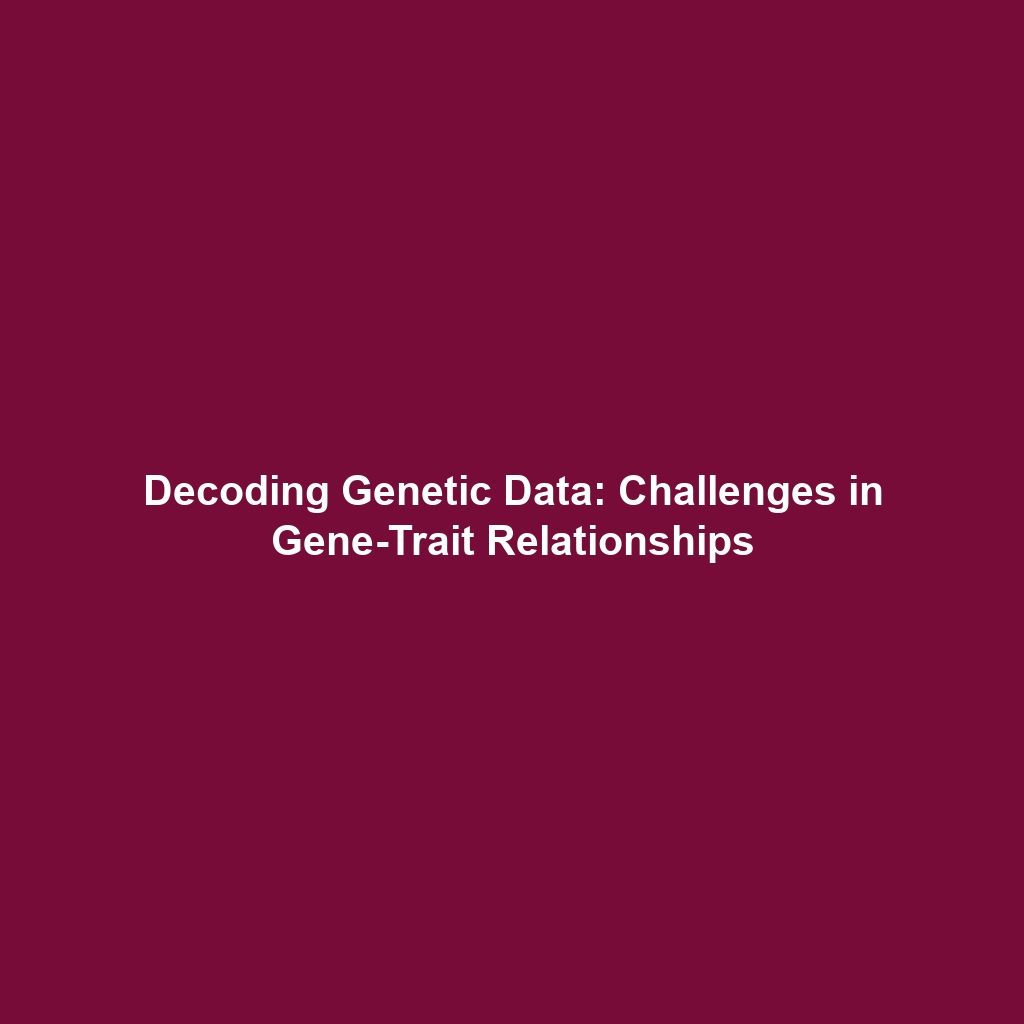Challenges in Interpreting Genetic Data and Identifying Causal Relationships Between Genes and Traits
Introduction
The Human Genome Project (HGP), an unprecedented scientific endeavor, mapped the entire human genome and paved the way for genomic research. However, one of the most significant challenges it poses is interpreting genetic data effectively and establishing causal relationships between genes and traits. Understanding these challenges is critical, as it influences areas such as personalized medicine, genetic counseling, and disease risk assessment. This article delves into the complexities involved in interpreting genetic data and highlights their relevance to the ongoing explorations of the HGP.
Key Concepts
Genetic Variation
Genetic variation is central to the study of traits and diseases. Identifying how variations in genes influence particular characteristics necessitates sophisticated statistical methods and a deep understanding of genetic architecture.
Gene-Environment Interaction
Interactions between genes and environmental factors further complicate the interpretation of genetic data. These interactions can modify phenotypic outcomes, making it challenging to attribute specific traits solely to genetic influences.
Limitations of Current Technologies
While next-generation sequencing technologies have advanced our understanding of the genome, they often yield vast amounts of data that are difficult to interpret. Moreover, the sheer complexity of biological systems means that genetic data alone may not provide a complete picture.
Applications and Real-World Uses
Understanding the challenges of interpreting genetic data plays a pivotal role in multiple applications stemming from the Human Genome Project, including:
- Personalized Medicine: Tailoring medical treatments based on individual genetic profiles is a key goal, but requires accurate interpretation of genetic data to establish the right correlations.
- Genetic Counseling: Helping individuals understand their genetic risks involves deciphering complex data and making it actionable.
- Public Health Genetics: Identifying population-level genetic risks can inform public health strategies, necessitating robust data analysis.
Current Challenges
Several challenges inhibit the effective study of genetic data and the identification of causal relationships:
- Difficulty in establishing causation versus correlation.
- Data overload from next-generation sequencing.
- Ethical concerns surrounding genetic information use.
- Inadequate integration of multi-dimensional data sets including clinical, environmental, and genetic data.
Future Research and Innovations
As we look ahead, innovations in genomic research hold the promise of overcoming many of the current challenges. Future research may encompass:
- Development of improved algorithms for causal inference.
- Integration of artificial intelligence to analyze complex data sets.
- Focus on functional genomics to better understand gene function and interactions.
- Advancements in CRISPR and other gene-editing technologies to validate genetic hypotheses.
Conclusion
The challenges of interpreting genetic data and identifying causal relationships are vital components of the ongoing journey initiated by the Human Genome Project. As researchers continue to unravel the complexities of genetics, it is essential to address these challenges to harness the full potential of genomic research. For further exploration, visit our related articles on genetic research and advancements. Join us in understanding how genetics shapes human health and disease.
